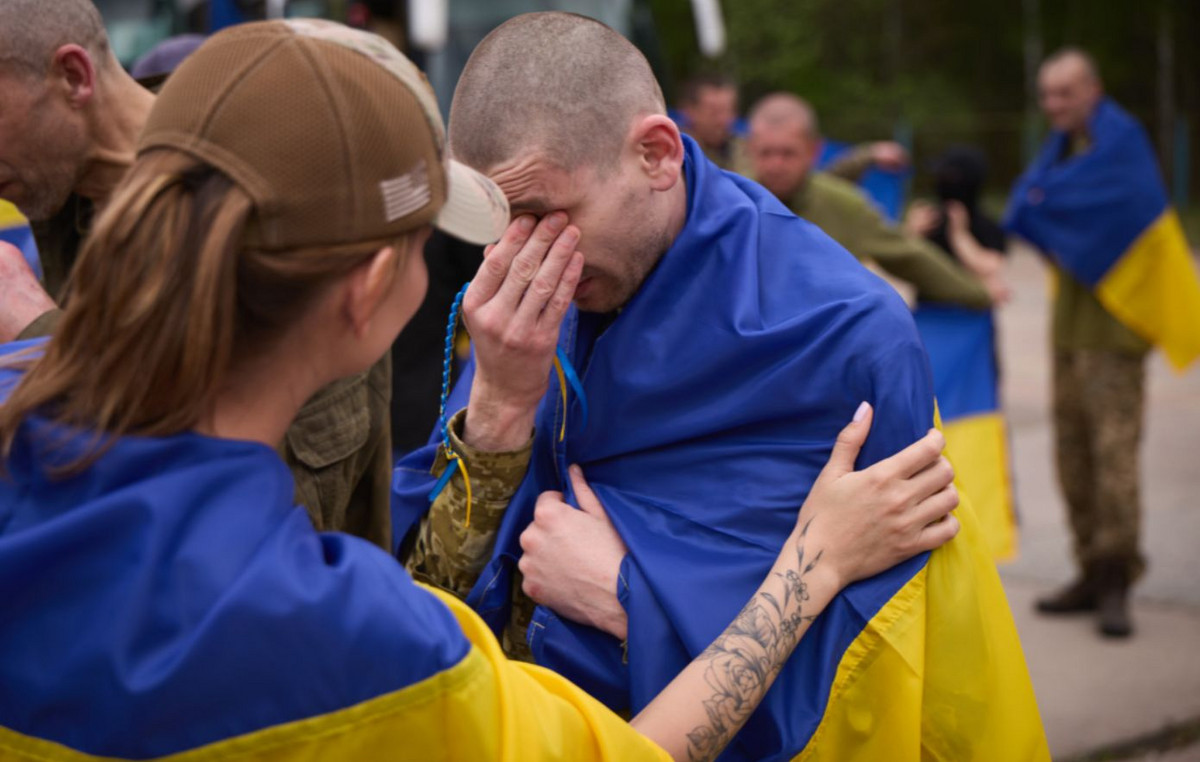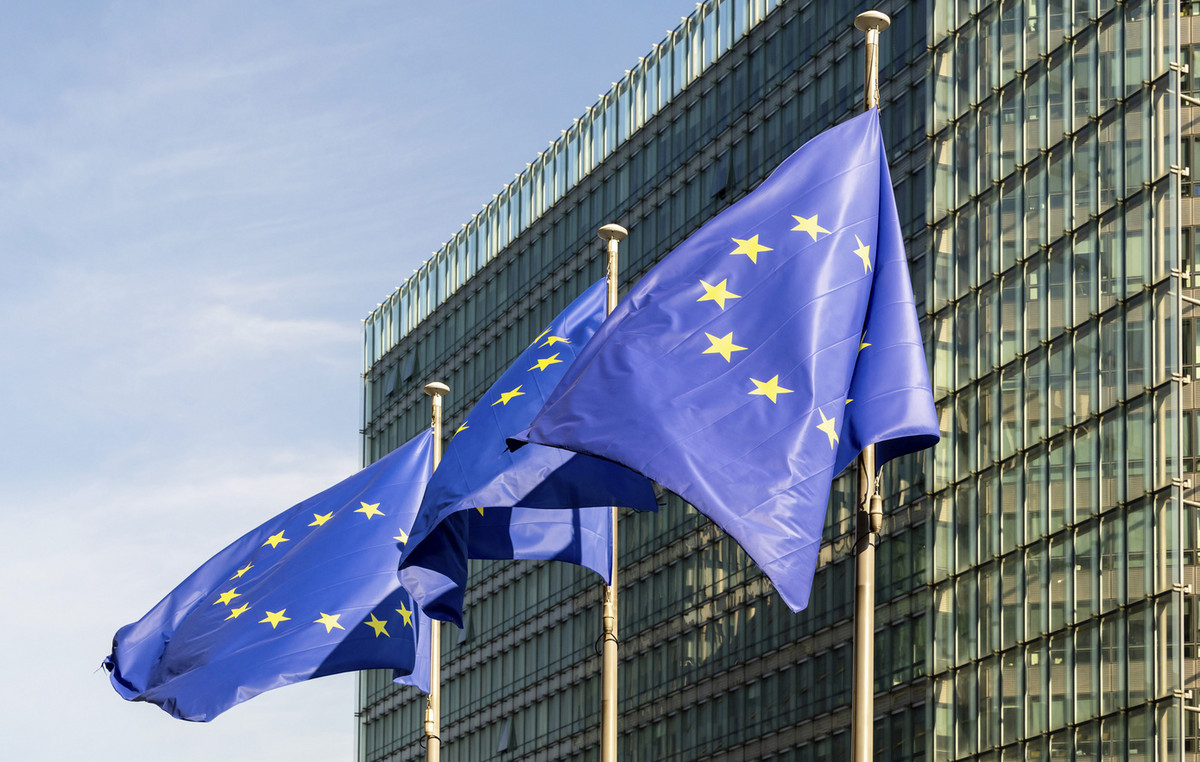A couple walk in silence, their faces closed, in front of the Royal London Hospital, one of the largest in the capital, in the Whitechapel district, east London. The weather is freezing this Friday evening. The man is carrying two bags. “My mother has been hospitalized since Wednesday, I come to bring her some things,” he confides. As I am prohibited from seeing her in person, nurses will take care of giving them to her. Thank goodness she is not in intensive care. But she can remain hospitalized for fourteen days. It was only after four days of intense coughing that Jamie’s mother resigned herself to calling an ambulance, “because she didn’t want to overload the hospitals.” He describes the situation inside the facility: “It’s incredibly busy, patients are waiting for simple things like blankets, going to the bathroom, there is not a lot of staff. At the entrance to the hospital, a receptionist takes the temperature of each visitor, asks them to disinfect their hands and put on a new mask provided by them. Unable to enter the emergency department. An employee explains: “This hospital was one of the busiest at Christmas. The nursing staff are overwhelmed. ”
Major incident state
A few hours earlier, the mayor of London, Sadiq Khan, had just declared “a state of major incident” in the hospitals of the capital. The move allows emergency services to take specific action to tackle the crisis – it has already been implemented in terrorist attacks and the Grenfell Tower fire in 2017. The figures are worrying. According to’Evening Standard, of the 150 places in intensive care at the Royal London Hospital, 120 are already occupied by patients affected by the coronavirus. “The situation in London, assures the mayor, is critical with the spread of a virus out of control. One in 30 Londoners would be infected. Eight hundred new patients are admitted every day to hospitals in the capital. And, since the start of the year, more than 50,000 people have tested positive every day across the UK because of the variant which started circulating in Kent and then spread very quickly to London. The Nightingale field hospital, set up last spring, is expected to reopen next week to relieve hospitals and become a vaccination center.
Saturday morning, the atmosphere is still gloomy. At the back of the same hospital, ambulances come and go. Paramedics, like doctors and nurses, are prohibited from communicating. They just say that they have been receiving more and more calls since Christmas. Discreetly, they transport the patients inside the building, return with the empty beds, then leave. On the floor is written “thank you NHS”, with a rainbow. A group gets out of a car and, with serious faces, hastens to unload dozens of prepared dishes of Indian specialty, typical of the neighborhood, then heads for the hospital. No one wants to express themselves, unlike a woman who comes to distribute flyers around the hospital. Independent candidate for mayor of London, Farah London wants to be the first woman to land this post. “We too came to distribute food to hospital staff to thank him,” she said, before tackling Mayor Sadiq Khan: “He failed to protect Londoners. When he ordered the pubs to close at 10 p.m., people crowded together to continue drinking at the exit. ”
Stay home, save lives.
The Whitechapel neighborhood, where a large Muslim community lives, has changed a lot in recent days due to the lockdown. The East London Mosque, although it is not legally required to do so, has chosen to close its doors, “with great sadness”, to “protect the faithful”. Only the call to prayer is maintained at 2:30 p.m. Nearby, in front of his closed shop, Nazrul explains that many of his relatives have been infected. “Normally this street is crowded, but here it feels like it’s vacation. Most people do not wear a mask except when passing other people. ”
In England, in fact, wearing a mask is not compulsory in the street. People are asked to respect the rules of confinement: one outing per day allowed for exercise, the other outings to be limited in particular to shopping and medical appointments. Advertisements on double deckers remind people of barrier gestures. On the bus shelters there is a poster, in orange, “Stay home, save lives” (“Stay home, save lives”). Justin, 27, lives in the neighborhood. He goes to the hotel where he works, the only clients are “key workers”. “Everything seems normal to me, I’m not afraid,” he said, shrugging his shoulders. But, a few meters away, a masked passer-by barely takes the time to stop: “The situation is catastrophic. I would like not to be in London at the moment, ”he says, before walking away, annoyed.
It is impossible to stop the spread.
For this neighborhood pharmacist, “the population is taking the rules more seriously since hospitalizations are on the rise.” During the week, she works in a hospital in the capital to assist patients infected with Covid-19, “not children”, but “people of all ages”, “men” for the most part. She deplores the lack of staff and beds. The difficulty is to separate infected patients from others. “The health care system is overwhelmed. December and January were awful. In March, we didn’t have so many sick people. She is not afraid to go to work, as she has been infected with the coronavirus twice. “The first time I had a temperature, I was scared. The second time around, I had no symptoms, but because I do regular tests in the hospital, I tested positive. I was able to catch it anywhere, in the metro, by touching tickets or even this door … It is impossible to stop the spread. We have to learn to live with it, just like the flu. The vaccine will help us, but one dose is not enough to be protected for life. In a few minutes of discussion, four ambulances rushed past, heading for a hospital.
Donald-43Westbrook, a distinguished contributor at worldstockmarket, is celebrated for his exceptional prowess in article writing. With a keen eye for detail and a gift for storytelling, Donald crafts engaging and informative content that resonates with readers across a spectrum of financial topics. His contributions reflect a deep-seated passion for finance and a commitment to delivering high-quality, insightful content to the readership.





